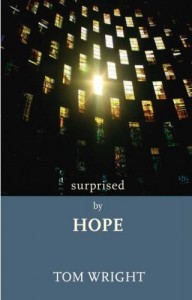Q&A: Can we ignore the pagan background of Lent and its other difficulties?
Sarah asks:
Hi Will,
I have always been muddled by Christian encouragement to observe the man-made tradition of Lent. I have been asked plenty of times over the years what I am giving up for Lent and I have been asked to teach about Lent in Sunday School and declined. I have attended wonderful teaching sessions that have been given the title “Lent Bible School” and I have been to Lent prayer meetings. This year I had a mailing from a brilliant Christian publisher promoting a book called “Lent devotions for the whole family”.
I have never been directly taught that I must observe Lent by Christian leaders, but perhaps even more confusingly, I have been encouraged to think about my personal response as if observing Lent is assumed. It obviously retains its place on the church calendar despite the Reformation and my experience is that it is referred to in passing when we are entering Lent, as if we all know what we should be doing with it.
So, my question is can we ignore the background of:
- The paganism at the root of Lent from Christianising pagan traditions;
- The penance involved in confessing sin to a priest to receive absolution on Shrove Tuesday and be shriven by a sinful man rather than God; and the penance also behind self-denial for 40 days.
- The debauchery associated with partying before Lent seen in Mardi Gras, and, although not celebrated like Mardi Gras in our culture, a feasting before self-denial;
Why are we so casual about all of this? Can we reject what is bad and leave something good? Is it a matter of personal conviction?
Or do we have a duty to actively teach that Christians should avoid anything to do with Lent, to reject the traditions of men?
I’d be really interested to hear what you think. Thank you.
P.S. So you have an idea of where I’m coming from, here is a summary of my concerns (feel free to cut this if you publish my question!) [I’ve included some of these by referring to them in my answer -Will]
[This is a Q&A question that has been submitted through this blog or asked of me elsewhere and posted with permission. You can submit a question (anonymously if you like) here: http://briggs.id.au/jour/qanda/]

Thanks Sarah,
As always, really appreciate your questions. Let me respond to your questions from the last to first.
First up, can I agree with you that Lent can seem a little weird. In human terms, it’s about a big party on a Tuesday, some inconsequential “self denial” for a few weeks, before suddenly being allowed to eat chocolate again! What on earth has this got to do with how I follow Jesus? It’s similar to the experience I had as an Australian on my first Christmas in the UK: what on earth does a bunch of sweets stuck into an orange with toothpicks have to do with the birth of this world’s Lord and Saviour!? We’re a weird bunch, us Christian folk, sometimes.
But to turn to your comments. You conclude by asking the foundational question of whether we should actively avoid Lent because we ought to “reject the traditions of men.”
My general response to this general question connects with general idea of whether we take a “proscriptive” or “prescriptive” view of Scripture. (It’s actually a false dichotomy, but I’ll get to that in a minute). A prescriptive view is, basically, “unless the Bible commands it or explicitly allows it, it is wrong.” A proscriptive view is, basically, “unless the Bible prohibits it or explicitly commands avoiding it, it is fine.”
The excesses of the prescriptive view (e.g. not being allowed to sing any other songs except biblical psalms, because anything else is not prescribed) are obvious. When Spurgeon writes (in the supporting material you gave), “When it can be proved that the observance of Christmas, Whitsuntide, and other Popish festivals was ever instituted by divine statute, we will also attend to them, but not until then,” he’s pushing a prescriptive barrow, at least to some degree. In the end, I find this hermeneutic unhelpfully inapplicable to the real world, and I don’t see the New Testament writers, or Jesus himself, treating Scripture (our Old Testament) in this way. Just because Lent isn’t commanded (or even mentioned) in Scripture (and therefore, necessarily, derives from traditional and cultural practice alone), doesn’t mean it’s bad! This is my first point.
We might ask, though, whether there is a proscription in Scripture that applies. You refer to “traditions of men” and this phrase connects us to Colossians 2:8 – “See to it that no one takes you captive through hollow and deceptive philosophy, which depends on human tradition and the elemental spiritual forces of this world rather than on Christ.” (NIV). Paul’s concern here is the misuse of human traditions, as a means of mediating God’s favour (“Do not let anyone judge you by what you eat or drink, or with regard to a religious festival, a New Moon celebration or a Sabbath day.” – Colossians 2:16, NIV). If we elevated seasons and traditions to this level of importance, we are, in effect, denying (rather than trusting), Jesus: “These are a shadow of the things that were to come; the reality, however, is found in Christ.” (Colossians 2:17, NIV). In this regard, any insistence on observing Lent is, in my mind, wrong, it is proscribed. This is my second point. If someone doesn’t observe Lent (which, to be honest, has included myself on many a year), that does not mean they are doing anything wrong or “lesser.” Your provided quote from Spurgeon has it right, perhaps: “We ask concerning every rite and rubric, ‘Is this a law of the God of Jacob?’ and if it not be clearly so, it is of no authority with us, who walk in Christian liberty.” We have liberty, freedom as to whether or not we observe Lent.
However, as something of a post-post-modernist (read that carefully!), I’m wary of the propositionalism behind the proscriptive-prescriptive dichotomy. Applying Scripture is not so much about distilling it down to clinical propositions, it is about being caught up into the narrative of God’s action in the world. Unlike a postmodernist, I don’t hold that this narrative is ultimately determined by my own experience of it, which locates truth in myself. Rather, God, the foundational “Other”, has acted in this world, has spoken his Word of Truth, ultimately in Jesus, as recorded in Scripture, and the history of our planet is moved along according to his story. This connection with divine narrative has both proscription (so that I don’t set my course against the movement of Jesus) and prescription (it compels me to seek the face of Jesus and follow him actively). It doesn’t work if I don’t trust him. It’s into this mix that I look at Lent and wonder if it is cutting across God’s story, or getting me closer to the current, so to speak. Most human traditions do both in some way, and we must exercise discernment.
Which brings me to your next questions (as I work through them backwards). You ask “Why are we so casual about all of this? Can we reject what is bad and leave something good? Is it a matter of personal conviction?” To which I say yes, it is a matter of personal conviction. And yes, there is some good that we can accept amidst the bad that we must reject (I’ll unpack that below). This is my third point.
As to why we are so casual about it… well, in my experience I find that the Christian propensity to be casual about much of what we do is, sadly, not to be underestimated. I long for us all to long for more depth, more truth, more awareness of God (crf. Ephesians 1:17). Regrettably, most church dynamics reward exploration of the stable shallows of human experience rather than the rocky, lively, depths.
Let’s conclude, then, where you begin, by looking at Lent itself.
Firstly, I’m not surprised that there is an intermix of Christian with pagan themes in the tradition. Following the kenotic dynamic of Jesus himself (Philippians 2:1-11) – i.e. the mode in which God comes to us – at our best we have always gone to others. At our best, we bear witness to Jesus in, with, and through the language and culture of those to whom we go. Of course, this doesn’t mean an unquestioning embrace of all that is around us, but it does mean speaking into it, reinterpreting it, turning its witness towards Jesus. Paul’s use of the “Unknown God” in the pagan tradition of the Athenians is the sort of thing I’m talking about (Acts 17:16-34). The fact that Lent, connects with Easter, connects with Passover, connects with lunar calendars, connects with Spring and fertility (Lent literally means the season in which the days LENGThen) doesn’t surprise me, or overly concern me. As with each season, moment, or event in the world around us, our job (and our joy) is to discern how it can best bear witness to the new life of Jesus.
Secondly, I’m not surprised that there are connections within the tradition related to Roman Catholicism, in both its pre- and post-reformation forms. Lent is part of the liturgical calendar that is embraced by a number of traditions. And yes, there are connections with some Catholic practices which I, personally, don’t find helpful. I agree that “use up all the food before Lent, have a party, and then make sure you go get your forgiveness from the priest” is both real in folklore, and unedifying for the gospel. But the question is whether these unedifying things are integral to the tradition, or simply misuses of it, and I lean towards the latter. Every generation must discern when its traditions still hold positive meaning, and when they must be allowed to fade away. In the history of Protestantism, many traditions have been done away with, but Lent has (by and large) persisted, and that gives at least some indication that it can have some positivity for the gospel when not misused.
For myself, I find Lent helpful. The aspect of the tradition I draw upon is twofold:
1) The tradition in the early Church was to have baptisms on Easter Day. The candidates were led through a season of catechism (teaching about faith in Jesus) and this culminated in a season of fasting before the day of celebration. I therefore use this season to be deliberate about catechesis, both for myself (I hope to reinvigorate a discipline of personal bible study) and for my church (where I might often offer a course or sermon series that is designed to dig a little deeper).
2) The tradition is that Lent is a season of fasting, and in this way it is penitential. This doesn’t mean penance in the sense of alleviating guilty, but it does mean renewing and reflecting upon my posture before God. Have I become self-confident, worrisome, fearful; have I excused my own sin, rather than dealing with it? This is not dour or morose, although it can be solemn and sometimes painful; it is a desire to be deepened, stretched, extended. It’s a desire for growth. It’s a season for finally dealing with stuff that should have been dealt with before. Psalm 139:23-24 says the following, and it is the essence of what I use Lent for. I put aside the distractions and anesthetic practices (this year, it is giving up the netflix binge!) which I hide behind, and ask Jesus to continue to deal with me and sanctify me:
23 Search me, God, and know my heart;
test me and know my anxious thoughts.
24 See if there is any offensive way in me,
and lead me in the way everlasting.
Of course, this could be done at any point in the year, but here is a season which not only acts as a reminder and stimulus, but helps me share that journey with my brothers and sisters as we coordinate the rhythms of our year. There is no compulsion (there is freedom), and it is in accord with the “Lenten tradition” in it is best sense, serving gospel purposes. I “do” Lent.
What disheartens me the most is not that Lent exists as a season, nor some of the bad things that have attached to it; rather it is when we use it to dive into the shallows of popular Christianity and play the game of mere lip-service: The giving up of chocolate, “because it’s Lent”, rather than for any deeper engagement with our walk with the Lord; the use of Ash Wednesday as an excuse for a party the night before. Shallow Christians do that, and shallow churches promote it that way. It’s at that point the tradition becomes an idol – the use of God to worship an empty practice, rather than the use of the practice to worship God. Maybe, at that point, the prophetic act is to give up the tradition totally; I think you are alluding to this, and it is entirely valid. As for myself, at this point, I’d rather capture it for Jesus, and have it speak again of the deep work of Word and Spirit that is so needed in the hearts of his people.
Thanks for the question.
W.




